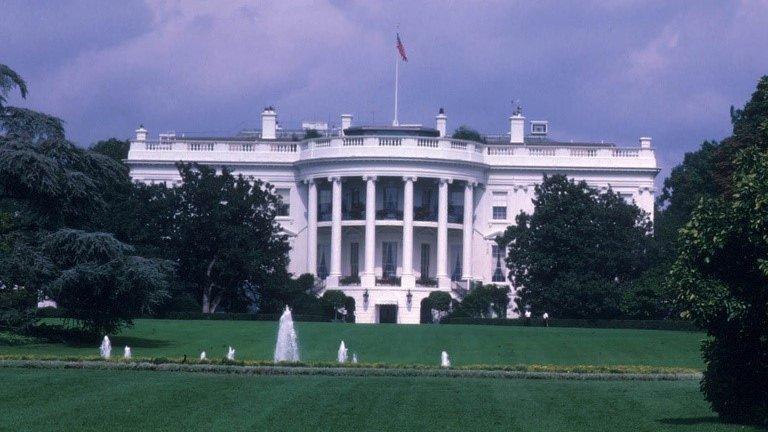US Muslims reel at Trump supporters' hostility
- Published
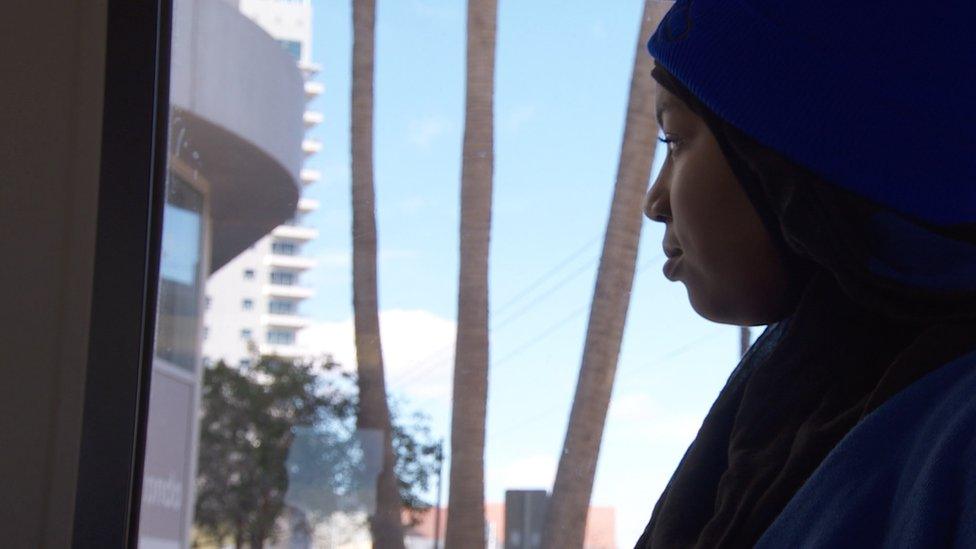
Talibah Abdul-Wahid has been subject to abuse
Hard-gambling, hard-drinking, hard-living Las Vegas is not, you might think, a natural fit for Islam.
And yet, according to the Islamic Society of Nevada, there are six mosques and around 30,000 Muslims in this oasis of neon.
For the Islamic minority in Sin City, life is not always easy.
Gazing out of a bus window at the garish lights, Talibah Abdul-Wahid, a student who also teaches pupils at the city's Masjid as Sabur mosque, is worried.
As an American Muslim in a black hijab, the traditional shawl covering head but not face, she does not always find these journeys pleasant.
"I get people who don't want to sit next to me, people who whisper things like, 'Does she have a bomb on her, is she going to harm us?'" she says.
This week, Ms Abdul-Wahid, 19, joined fellow Muslims and members of other faiths to condemn the murders of 14 people in California, which are being investigated as an act of Islamist terrorism.
Surrounded by banners proclaiming Islam's respect for America and promotion of tolerance, freedom and democracy, they talked about the violence, the backlash and about Donald Trump.
The Republican presidential candidate responded to the killings in San Bernardino by proposing the suspension of all Muslim immigration to the US, a statement that sent chills up Muslim spines.
Islam, said one of the speakers, Dr Zia Khan, a Las Vegas cardiologist, had once again been "tarnished and ridiculed by unscrupulous politicians".
Such language, he argued, would "fan the flames of hate and lead us down the very path that our enemies want to see us go".
Hypocritical?
There is a weary feeling here about the cycle of events; a violent attack followed by an expectation that the Islamic community will publicly restate a commitment to peace.
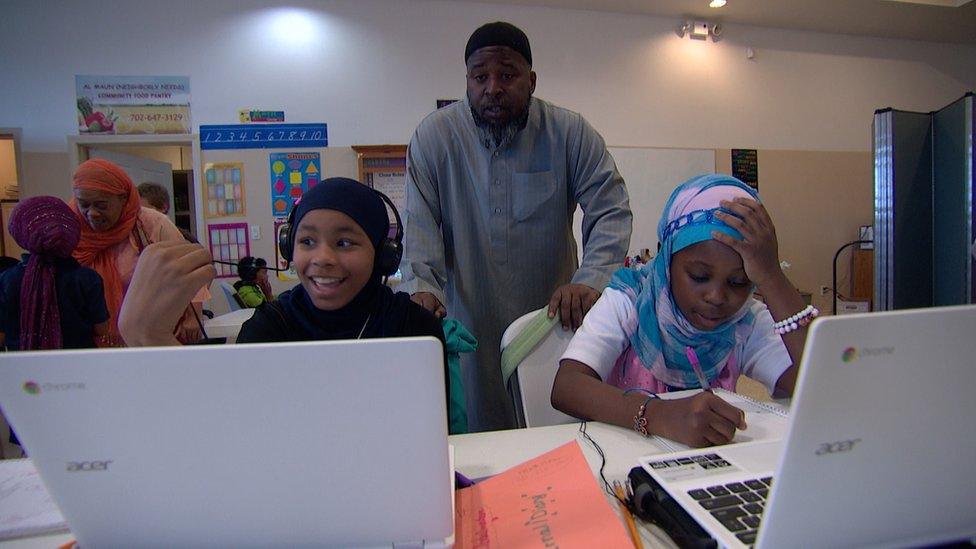
Fateen Seifullah thinks unreasonable demands are being made of the Muslim community
At the Masjid as Sabur mosque, the imam Fateen Seifullah, thinks such an expectation is hypocritical.
"It is just inconsistent," he says, "we're not mentioning it when people are being gunned down by white supremacists, by people with distorted ideologies in this country who go into the theatres, who go into the schools, who go into the abortion clinic, who went into the church."
In other words, why are such killers rarely referred to as Christian extremists, even when they claim to be driven by Biblical teachings?
"We would be safe if we just referred to criminals as criminals, murderers as murderers without putting religious titles on them," says Mr Seifullah who argues that Mr Trump's response to San Bernardino has "given people approval" to be racist and bigoted, "to think that it's OK to discriminate against one group of people over another."
Half a century after "intense civil rights struggles," he warns, "we can go back to that. There are people who are embracing his rhetoric and that's frightening."
Trump rally
As he spoke, across town the man himself was preparing to address supporters at a rally near his golden Trump Tower hotel complex.
In the crowd, many supporters brushed off talk that the presidential hopeful was making life difficult for Muslims.
"Hopefully his comments did not bring out the worst in those that might be on the fringe," said Chris Patterson, wearing a Trump T-shirt, scarf and badge.
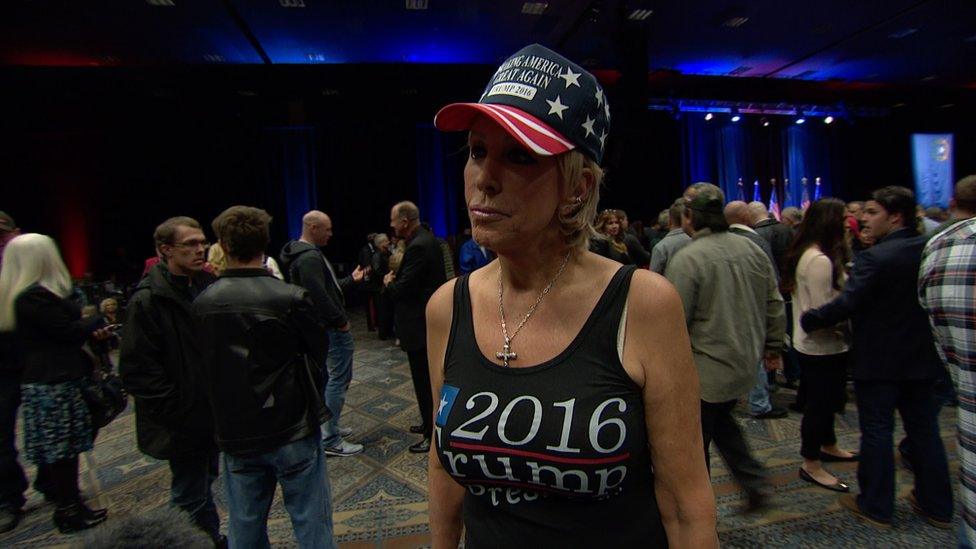
Norma Ash took a hard line against Muslims
"As far as I know no-one really here goes out and attacks people for what they do," he adds.
Norma Ash from Maine, sporting a baseball cap bearing Mr Trump's slogan "Make America Great Again" was more incendiary, arguing in favour of violence against mosques in the US.
"I think they should bomb mosques," she says, clarifying when asked that she means mosques in the US, "I think they should because they keep coming here and making trouble.
"You don't know what they are. You don't know if they are bad people or good people."

How many Muslims are there in the US?
Pew Research Center's 2014 Religious Landscape Study found that 0.9% of US adults identify as Muslims.
A 2011 survey of Muslim Americans, estimated that there were 1.8 million Muslim adults (and 2.75 million Muslims of all ages) in the country. That survey also found that a majority of US Muslims (63%) are immigrants.
Demographic projections estimate that Muslims will make up 2.1% of the US population by the year 2050, surpassing people who identify as Jewish on the basis of religion as the second-largest faith group in the country (not including people who say they have no religion).
A recent Pew Research Center report estimated that the Muslim share of immigrants granted permanent residency status (green cards) increased from about 5% in 1992 to roughly 10% in 2012, representing about 100,000 immigrants in that year.
Source: Pew Research Center, external

Her sentiments were not echoed by anyone else we spoke to at the rally which was, in some ways, a rather strange event.
The mogul's speech, during which he repeatedly inveighed against the media penned in to the centre of the hall, was interrupted several times by protestors.
As security guards attempted to drag one black protestor from the room, someone in the crowd cursed profanely and shouted that he should be set on fire.
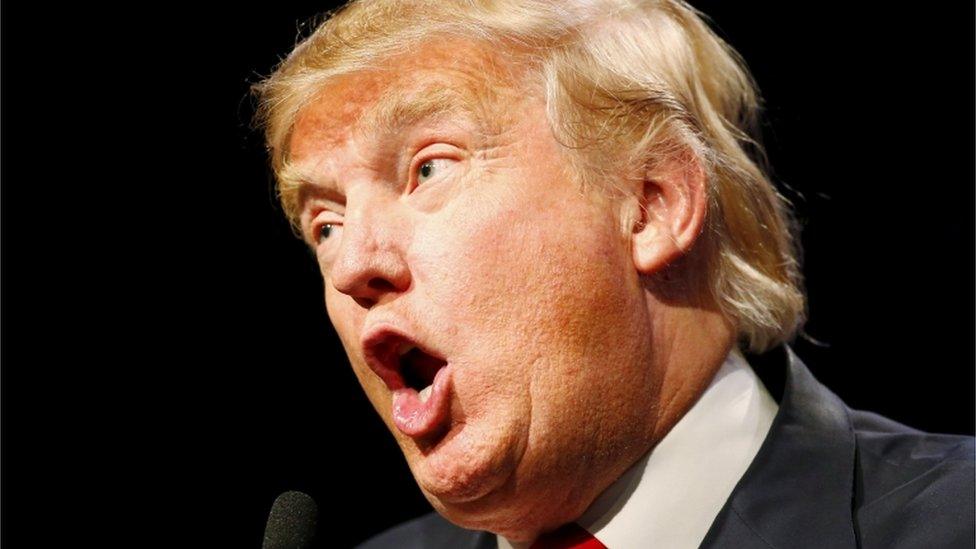
Donald Trump proposed a ban on Muslims entering the US
It was a lone voice but one adding to a sense of foreboding among the Muslims of Las Vegas.
"Over the recent weeks, comments from people like Donald Trump have definitely added fuel to the fire, says Talibah Abdul-Wahid.
"Before I leave to school, I'm always worried, is this going to be the last time I'm going to go home? Is this going to be the last time I see my family?"
Nevertheless, Ms Abdul-Wahid says she will not stop wearing her Islamic attire.
"If we stop wearing our hijab, if we stop claiming to be Muslims that means that people like Donald Trump win, that we completely disregard the constitution and that we believe that we are terrorists when we're not."
American Muslims explain how they feel in the United States
- Published8 December 2015
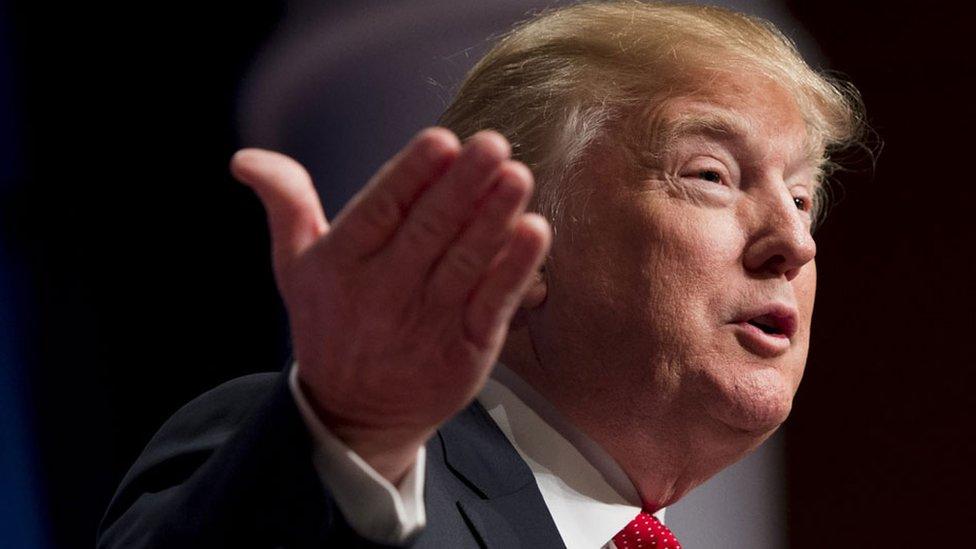
- Published9 November 2016
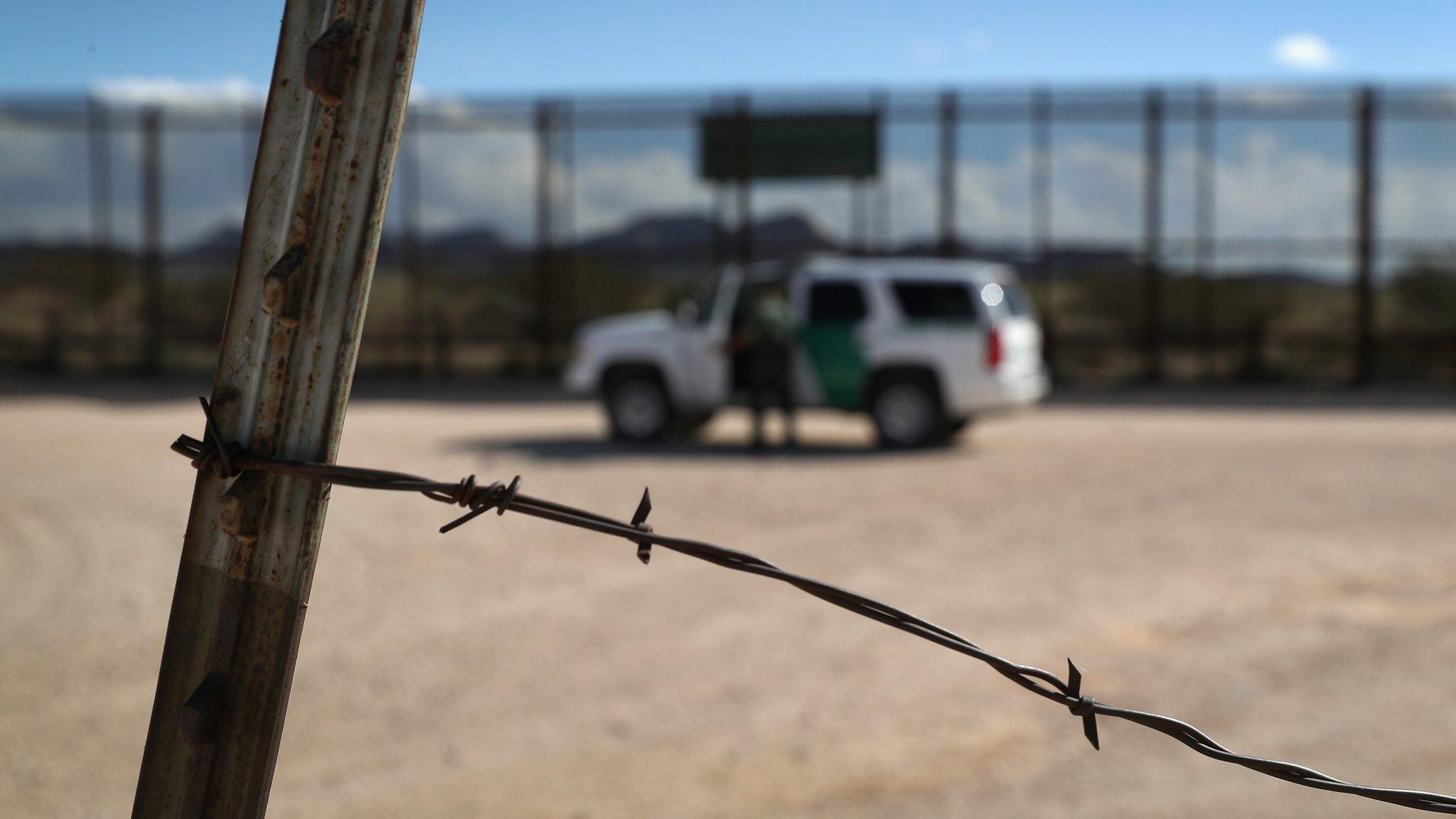
- Published14 December 2015
- Published8 December 2015
- Published16 March 2016
